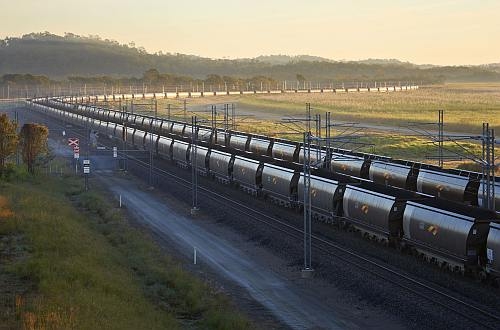The proposed line with an annual capacity of 60 million tonnes would have served BHP's new coal mines in the Bowen Basin and also reduced the company's reliance on Aurizon's 1067mm-gauge network in the region.
BHP had indicated that while it was prepared to share a rail corridor to Abbott Point with other producers in the adjacent Galilee Basin, it would only consider dedicated single-user trackage for its coal exports.
BHP's only remaining project in the area yet to come on-stream is the Caval Ridge mine, which has a projected output of 5.5 million tonnes per year, although the company says this will be served by Aurizon's existing railway network and planned capacity increases at the port of Hay Point.
Meanwhile, the Queensland state government has released its Galilee Basin Development Strategy, to stimulate development of several large mine proposals in the region by "incentivising first movers in mine, rail and port infrastructure."
State development, infrastructure and planning minister Mr Jeff Seeney says large proposed coal mining projects had a total forecast investment of $A 28.4bn ($US 26.6bn) and in an effort to encourage first movers, the government will consider offering reduced royalties for an initial period and access to the T2 site at Abbot Point port for coal stockpiling and handling.
Queensland-based Aurizon says it supports the strategy saying it is well-positioned to support the opening up of the Galilee Basin.
"Aurizon's ultimate aim is to bring our commercial strength and operational knowledge to the equation with an open-access, consolidated infrastructure solution for the Galilee," it said in a statement.
Aurizon has been working with one of the mine proponents, GVK Hancock, on an integrated open-access rail-port project, which was announced in March 2013.

